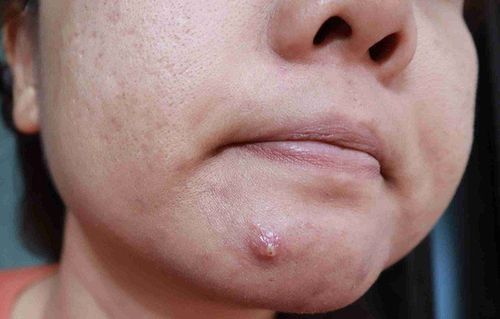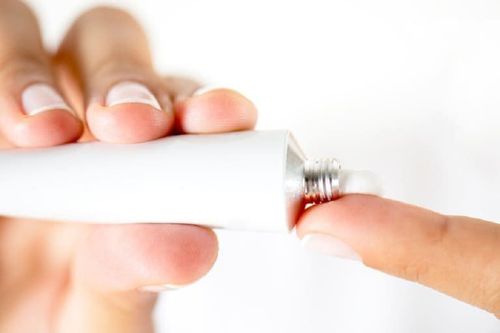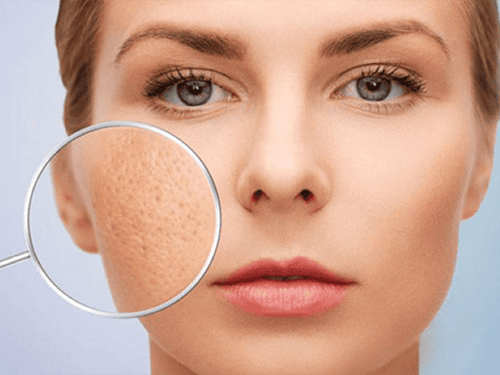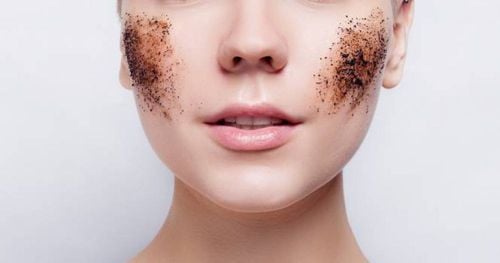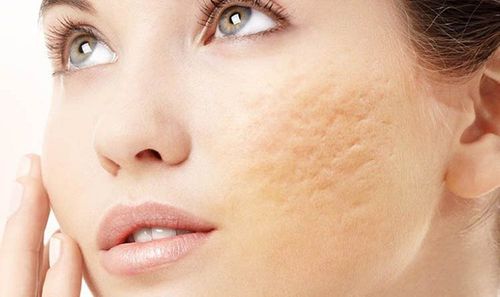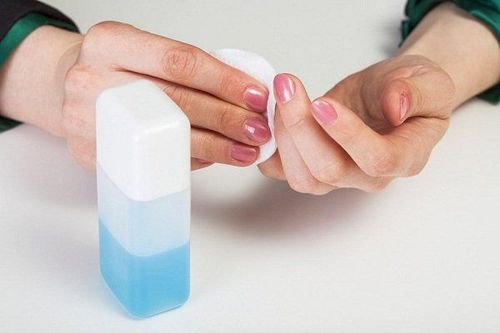This is an automatically translated article.
You are persistently treating acne skin but still do not see the effect and acne continues to grow. In fact, acne skin care habits can be the cause of acne not going away. Here are 10 skin care habits that are said to aggravate acne, and dermatologist tips to help you change those habits.1. 10 acne skin care habits that need to be stopped immediately
If you're struggling with endless acne, you may inadvertently commit these 10 bad habits:Regularly try a new acne treatment every week or so: This can cause serious problems. skin irritation, causing skin breakouts. And washing your face throughout the day also causes skin irritation and breakouts. Apply acne medication only to acne-affected areas. It makes sense to treat what you see, but this approach doesn't prevent new breakouts from appearing. Excessive use of makeup, skin care and hair care products can cause breakouts. Some makeup, along with many skin and hair care products, contain oils or other ingredients that can cause breakouts. If you continue to use them, you will continue to see persistent acne breakouts. Sharing makeup, makeup brushes, or makeup tools. Even if you prioritize using non-comedogenic products, sharing makeup can still lead to breakouts. Acne isn't contagious, but when you share makeup like makeup brushes or sponges, acne-causing bacteria, oil, and dead skin cells on someone else's skin can build up in your makeup. When you use that makeup, you can transfer bacteria, oils, and their dead skin cells to your skin. This clogs the pores leading to acne. Sleep with makeup on. Even when using non-comedogenic makeup products, acne can still appear if not before going to bed. Washing your face too often, many times a day can irritate the skin, leading to more pimples.

Rửa mặt quá sạch, thường xuyên nhiều lần trong ngày có thể gây kích ứng da
2. When to see a dermatologist?
Many people manage their acne by following skin care tips and using word-of-mouth acne treatments. If you continue to see acne after applying all of the above, it is best to see a dermatologist for further advice. Because some people need prescription acne treatment such as acne caused by hormonal imbalance. With the help of a dermatologist, almost all people with acne can see an improvement in their skin.
Nếu tiếp tục thấy mụn sau khi áp dụng tất cả các cách trên, tốt nhất bạn nên đến gặp bác sĩ da liễu để được tư vấn kỹ hơn
3. How to take care of acne skin properly?
Some of the right acne skin care methods include:Waiting a while for an acne treatment to work. You want to use a product that takes 6 to 8 weeks and takes a long time to see some improvement. If by that point there is still no improvement, you can try some other products. The average time usually takes 3 to 4 months. To prevent new breakouts, apply a thin layer of acne medication to the affected area. For example, if you tend to get breakouts on your forehead, nose, and chin, you'll need to apply the mixture evenly across all of these areas. Only use makeup, sunscreen, skin care, and hair products that are labeled "non-comedogenic" or "won't clog pores." These products do not clog pores and cause breakouts in most people. Make sure not to share makeup brushes, brushes, and makeup tools in general, as this practice can spread dead cells, excess oil, and bacteria from one person's face to another. Always remove makeup before going to bed. If you are too tired and lazy to wash your face, use a makeup remover tissue. Just make sure it's a non-comedogenic product. Wash your face twice a day, when you wake up and before you go to bed. You should also wash your face after completing an activity that makes you sweat a lot. Use acne treatments as directed by your dermatologist. If your skin is dry, apply a moisturizer made for acne-prone skin. You should apply moisturizer twice a day, after washing your face. Also avoid using astringents, rubbing alcohol, and anything else that can dry out the skin. Be gentle when washing your face and other areas of skin with acne. Use mild, non-comedogenic face washes. Use your fingertips to gently apply the cleanser in a circular motion. Gently rinse with warm water, using only fingers. Then pat the skin dry with a clean towel.
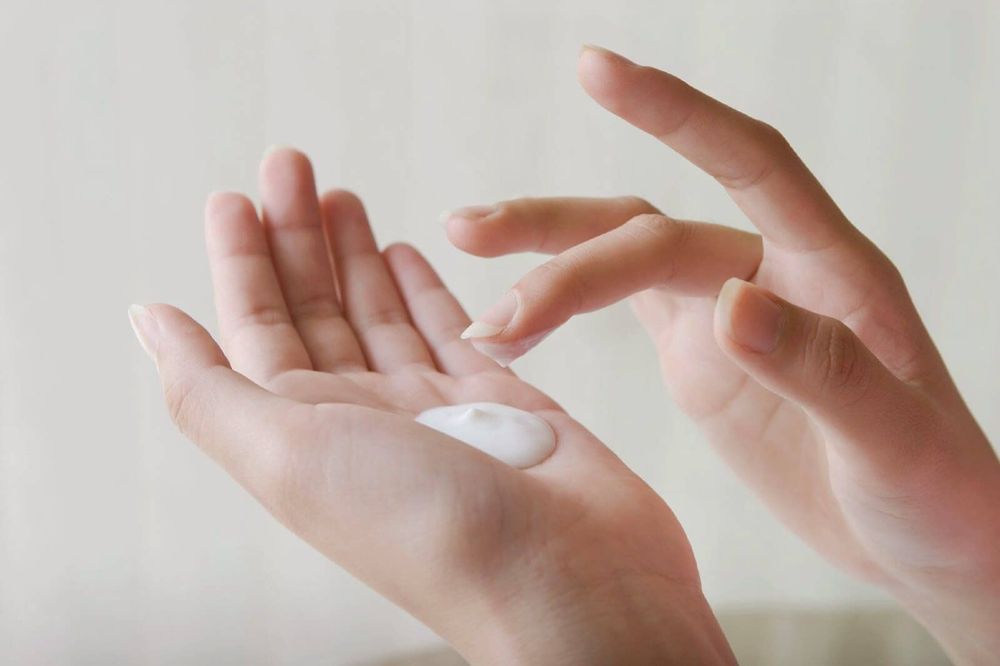
Nếu da bạn bị khô, hãy thoa kem dưỡng ẩm dành cho da bị mụn
Please dial HOTLINE for more information or register for an appointment HERE. Download MyVinmec app to make appointments faster and to manage your bookings easily.




